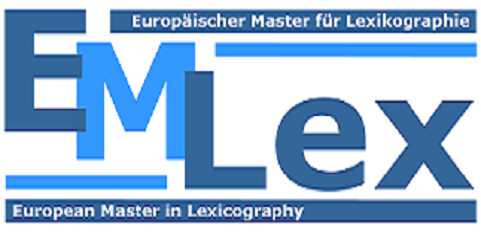About
The fifth shared task for Translation Inference Across
Dictionaries (TIAD 2022) is aimed at exploring methods
and techniques for automatically generating new bilingual
(and multilingual) dictionaries from existing ones in
the context of a coherent experiment framework that enables
reliable validation of results and solid comparison of the
processes used. This initiative also aims to enhance further
research on the topic of inferring translations across
languages.
TIAD 2022 will be held in conjunction to
the GLOBALEX
2022 – Linked Lexicography workshop
at the 13th Language Resources and Evaluation Conference (LREC
2022)
in Marseille (France) on June 20, 2022.
Task definition
The objective of TIAD shared task is to explore and compare
methods and techniques that infer translations indirectly
between language pairs, based on other bilingual resources. Such
techniques would help in auto-generating new bilingual and
multilingual dictionaries based on existing ones.
In particular, the participating systems will be asked to
generate new translations automatically among three
languages, English, French, Portuguese, based on known
translations contained in the
Apertium RDF graph. As these languages (EN, FR, PT) are
not directly connected in this graph,
no translations can be obtained directly among them there. Based
on the available RDF data, the participants will apply their
methodologies to derive translations, mediated by any other
language in the graph, between the pairs EN/FR, FR/PT and PT/EN.
Participants may also make use of other freely available
sources of background knowledge (e.g. lexical linked open data
and parallel corpora) to improve performance, as long as no
direct translation among the target language pairs is applied.
Evaluation of the results will be carried out by the organisers
against manually compiled pairs of K
Dictionaries and other resources.
Other language pairs and evaluation data might be included in
the evaluation process by the organisers, in which case the
participants will be conveniently informed.
Publication of results
Participants will submit a system paper that should
include a description of the system, the way the data have been
processed, the applied algorithms, the obtained results, as well
as the conclusions and ideas for future improvements. The papers
will be peer reviewed prior to publication to confirm that all
aspects are well covered.
The workshop will accept also regular papers from
participants who are not participating in the shared task but
still have worked in the topic of translation inference and want
to publish novel results or ideas, maybe with different datasets
and experimental basis as the ones proposed in this shared task.
We invite you to submit a 1,000-word abstract, which will be
peer reviewed on the basis of their scientific quality. Authors
of accepted abstracts will be asked to submit a full version of
the paper.
Both types of papers should have 4-8 pages and be formatted
according to the LREC
submission format. All the accepted papers will be
published as part of the LREC
workshops proceedings and presented during the Globalex
workshop. Paper submission will go through the START system (see
the Globalex
site for the submission link).
How to participate in the shared task
1. Contact us so we can be aware of your participation and inform
you about any possible change, issue, etc. (see contact details at
the bottom of this page)
2. Read the
task and data description
3. Get the input data (initial translations)
4. Run your system on the input data
5. Get the output results (inferred translations) and format it
according to the guidelines (see the
task and
data description section)
6. Send the output data to the organisers and wait for the
evaluation results
7. Write and submit a system description paper
8. Present your paper at the workshop
Important dates
Notice that the abstracts of regular papers (not
participating systems) will follow the general dates of the Globalex
workshop. The following schedule is for the systems
participating in the TIAD track:
10/01/2022 - Technical description of evaluation process and
data provided by the organisers
10/04/2022 - Submission of results by participating systems
29/04/2022 - Evaluation results communicated by organisers
27/05/2022 - Submission of system description papers
20/06/2022 - Globalex 2022 workshop day
References
Some papers describing previous work on translation inference
across dictionaries:
- Gracia J., Kabashi, B., Kernerman, I. (Eds.): Proceedings
of "TIAD-2019 Shared Task – Translation Inference Across
Dictionaries" co-located with the 2nd Language, Data and
Knowledge Conference (LDK 2019). Leipzig, Germany, May 20,
2019. See http://ceur-ws.org/Vol-2493/.
- Gracia J., Kabashi, B., Kernerman, I., Lanau-Coronas M.,
Lonke D.: Results of the Translation Inference Across
Dictionaries 2019 Shared Task. In Proceedings of
TIAD-2019 at LDK 2019, Leipzig, Germany, May 20, 2019. See http://ceur-ws.org/Vol-2493/summary.pdf
- Kaji, H., Tamamura, S. and Erdenebat, D. 2008. Automatic
Construction of a Japanese-Chinese Dictionary via English.
In LREC 2008 Proceedings: 699–706.
- Kernerman, I., Krek, S., McCrae, J. P., Gracia, J., Ahmadi,
S., and Kabashi, B. (Eds.), Proceedings of Globalex 2020
Workshop on Linked Lexicography. ELRA, 2020. See https://www.aclweb.org/anthology/volumes/2020.globalex-1/
- Mausam, Soderland, S., Etzioni, O,, Weld, D, Skinner, M. and
Bilmes, J. 2008. Compiling a Massive, Multilingual
Dictionary via Probabilistic Inference. In Annual
Meeting of the Association of Computational Linguistics. ACL.
https://www.cs.washington.edu/sites/default/files/ai/papers/tmpiVvJEg.pdf
- McCrae J. P., Bond, F., Buitelaar, P., Cimiano, Ph.,
Declerck, Th., Gracia, J., Kernerman, I., Montiel Ponsoda, E.,
Ordan, N. and Piasecki, M. (Eds.): Proceedings of the
Workshop “Shared Task on Translation Inference Across
Dictionaries”, co-located with the 1st Conference on
Language, Data and Knowledge (LDK 2017). Galway, Ireland 2017.
See http://ceur-ws.org/Vol-1899/.
- Saralegi, X., Manterola, I. and San Vicente, I. 2011. Analyzing
Methods for Improving Precision of Pivot Based Bilingual
Dictionaries. In Proceedings of the Conference on
Empirical Methods in Natural Language Processing, 846–856.
ACL. http://dl.acm.org/citation.cfm?id=2145526.
- Shezaf, D. and Rappoport, A. 2010. Bilingual Lexicon
Generation Using Non-Aligned Signatures. In Proceedings
of the 48th Annual Meeting of the Association for
Computational Linguistics, 98–107. ACL. http://dl.acm.org/citation.cfm?id=1858692
- Tanaka, K. and Umemura, K. 1994. Construction of a
Bilingual Dictionary Intermediated by a Third Language.
In Proceedings of the 15th Conference on Computational
Linguistics, Volume 1, 297–303. ACL. http://dl.acm.org/citation.cfm?id=991937
- Villegas, M., Melero, M., Gracia, J., and Bel, N. 2016.
Leveraging RDF Graphs for Crossing Multiple Bilingual
Dictionaries. In LREC 2016 Proceedings: 613–622. http://repository.dlsi.ua.es/242/1/pdf/175_paper.pdf
Contact
To inquire about any aspect of this shared task please send an
email to Jorge Gracia










